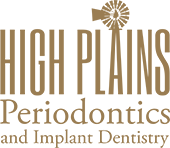If your periodontist has told you that you need soft tissue grafting, you might be alarmed. But there is no need to be.
The reason why someone needs soft tissue grafting is because of gum recession, a common dental problem that affects around 12% of adults.
A gum graft is a simple procedure that protects the teeth from further gum recession and the adverse effects that come with it. There are different types of tissue grafts, and which type the periodontist will use depends on the severity of your gum damage.
Differences Between Allografts vs. Autografts
Many oral procedures require the use of additional tissues to achieve the reconstructive purposes of the surgery. For instance, when there is an injury involved, the damaged tissue requires the use of grafts for proper restoration of gum function.
The most common soft tissue grafting types are:
- Connective tissue graft
- Free gingival graft
- Pedicle graft
Allograft
We can divide these types into two broad groups – autogenous and allografts. Let’s examine these groups to understand the main differences between them.
AUTOGRAFT
Autograft is a gum graft that comes from the patient’s own body. The periodontist makes a small incision on the roof of the patient’s mouth and removes some tissue from under the flap. After that, they stitch the tissue to the patient’s gums (a process known as connective tissue graft).
This type of procedure is a favorite among periodontists because of the quick healing process and the high success rate. The tissue contains the patient’s cells that quickly bond to the affected area.
Pros of Autografts
- Healthy tissue
- Less risk of disease transmission
- Stronger than sterilized tissue
Cons of Autografts
- Requires a surgical procedure
- Pain and discomfort
- Possibility of damaging healthy tissue
ALLOGRAFT
The one thing that autograft and allograft procedures have in common is that an allograft also requires grafting of tissue, but in this case, the graft doesn’t come from the patient’s mouth but another person (donor). The allograft process is quicker than the autograft and less painful.
Pros of Allograft
- Faster recovery
- Less painful
- Smoother post-surgery period
Cons of Allograft
- Weaker tissue due to sterilization
- Longer rehabilitation time
Both procedures are standard for patients suffering from gum recession. While autografts (connective tissue graft, free gingival graft, and pedicle graft) have a higher success rate, allografts result in faster recovery time. The doctor will be able to decide which option is better for you, based on your situation and oral needs.
Whether you choose autografts or allografts, both procedures prevent new infections from appearing. Your teeth will no longer be extra sensitive, and you will be able to enjoy all of your favorite foods and drinks again.
Am I Eligible For Tissue Grafting?
People who experience gum recession and feel that their teeth are prone to decay are perfect candidates for soft tissue grafting.
If you don’t treat gum recession on time, it can cause tooth or bone loss. Many people don’t notice the first symptoms of gum recession because it is such a slow and gradual process. However, if your teeth are getting increasingly sensitive, it may be time to talk with your periodontist about having a soft tissue grafting procedure.
A soft tissue grafting is necessary for patients who:
- Have broken or lost teeth
- Have exposed teeth roots
- Suffer from swollen gums
Gum recession is a common problem among adults, but when it is treated properly, it doesn’t have any significant long-term consequences.
Again, the problem may develop without any major symptoms, so dental experts recommend routine dental check-ups and examinations.
Treat Your Gums Today
Gum recession makes the teeth appear longer and unhealthy. A gum graft will quickly restore the health of your teeth and gums and allow you to smile with confidence.
The best way to determine which soft tissue grafting type is suitable for you is to schedule an appointment and have a professional periodontist inspect your teeth.
The team at High Plains Periodontics will happily answer all your questions regarding your unique situation. Contact us today at 806-507-6906 to schedule an appointment.




